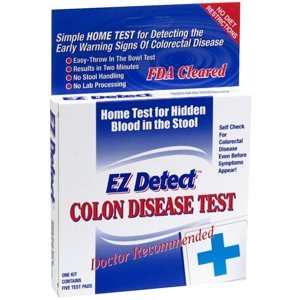 Earlier this month scientists announced a test that can detect a single cancer cell in a blood sample. Although some news reports were realistic – BusinessWeek commented that “researchers still aren’t sure what these circulating tumor cells (CTCs) actually mean” – most greeted the news as a revolution in the fight against cancer, promising early, non-invasive detection.
Earlier this month scientists announced a test that can detect a single cancer cell in a blood sample. Although some news reports were realistic – BusinessWeek commented that “researchers still aren’t sure what these circulating tumor cells (CTCs) actually mean” – most greeted the news as a revolution in the fight against cancer, promising early, non-invasive detection.
Dr. H Gilbert Welch offered a more sober opinion. Welch is the author of Should I Be Tested for Cancer?: Maybe Not and Here’s Why. While it’s commonly assumed that screening saves lives and that more screening is always better, Welch’s book helps patients (and the medical profession) understand that the implications of cancer screening are more complex.
More medical care leads to more screening
As Welch points out, medical care is a much more prominent part of our lives today than it was in the past. There are a number of reasons for this.
- Thanks to scientific advances, medicine has more to offer patients.
- Society is more affluent, which means more people can afford medical care.
- There’s a strong economic incentive to market medical services to people who consider themselves healthy.
Increased screening follows naturally from this general increase in medical care.
Screening increases anxiety about the possibility of disease, convinces asymptomatic individuals that they have a disease, and causes harm through unnecessary treatment. Here are a few points from Welch’s book.
- At some point in our lives, almost all of us will have cancer cells in our bodies. Most of us, however, will never be affected by the disease.
- Treating people for cancer results in death from other causes. Radiation can lead to heart disease. Chemotherapy can lead to secondary cancers.
- In order to persuade healthy people to get tested for cancer, it’s necessary to promote the idea that “you might have cancer.” For example, there’s an ad that reads: “The early warning signs of colon cancer: You feel great. You have a healthy appetite. You’re only 50.”
- Cancer screening has been oversold, both to the public and the medical profession.
- In our litigious health care system, it’s always safer for a doctor to test and treat a patient, even if this is ultimately not in the patient’s best interests.
Overdiagnosis could create an epidemic rather than a cure
Commenting on the new blood test for cancer cells, Welch explains:
[O]ur understanding of cancer is changing. As doctors increasingly try to find cancer early, before it causes symptoms, it has become clear the word “cancer” encompasses a broad array of cellular abnormalities: Some grow extremely rapidly, others do so more slowly, others stop growing completely and some even regress.
It also has become clear that an increasing number of our early cancer diagnoses — particularly those involving the breast, prostate, thyroid, kidney and skin — are made in people who are not destined to ever have symptoms or die from their cancer.
Overdiagnosis creates a new group of cancer patients – those who will never have symptoms and who will not die of cancer. In that sense, the new test for cancer cells could as easily lead to an epidemic of cancer as a cure.
Among the many downsides of overdiagnosis:
Becoming a patient unnecessarily has real human costs. There’s the anxiety of being told you are somehow not healthy. There’s the problem that getting a diagnosis may affect your ability to get health insurance. There are the headaches of renewing prescriptions, scheduling appointments and keeping them. Finally, there are the physical harms of treatments that cannot help (because there is nothing to fix): drug side-effects, surgical complications and even death. Not to mention it can bankrupt you.
The vicious circle of treating people who aren’t really ill:
[T]he test will lead more people to be told they have cancer (or that their cancer has returned). That will lead more people to receive cancer treatment. Because these new patients are bound to be less severely ill (if they are ill at all), they will appear to do better. Many will assume that their doing better is because of the new test and early treatment. So the test will be performed more often. And a lot of money will be made along the way.
Ironically, what this test might actually teach us is that it’s not that unusual for healthy people to have an occasional cancer cell in their blood.
Related posts:
The downside of overly aggressive cancer screening
Creating an epidemic of cancer among the healthy
Mental illness in college students: Overdiagnosed
Should grief be labeled and treated as depression?
How the pharmas make us sick
The last well person
Resources:
Image: Amazon
Amanda Gardnerm, Scientists Aim for Test That Spots Single Cancer Cell in Blood Sample, BusinessWeek, January 3, 2011
H. Gilbert Welch, Cancer breakthrough — or nightmare?, CNN, January 11, 2011
H. Gilbert Welch, Should I Be Tested for Cancer?: Maybe Not and Here’s Why


Sorry, comments are closed for this post.